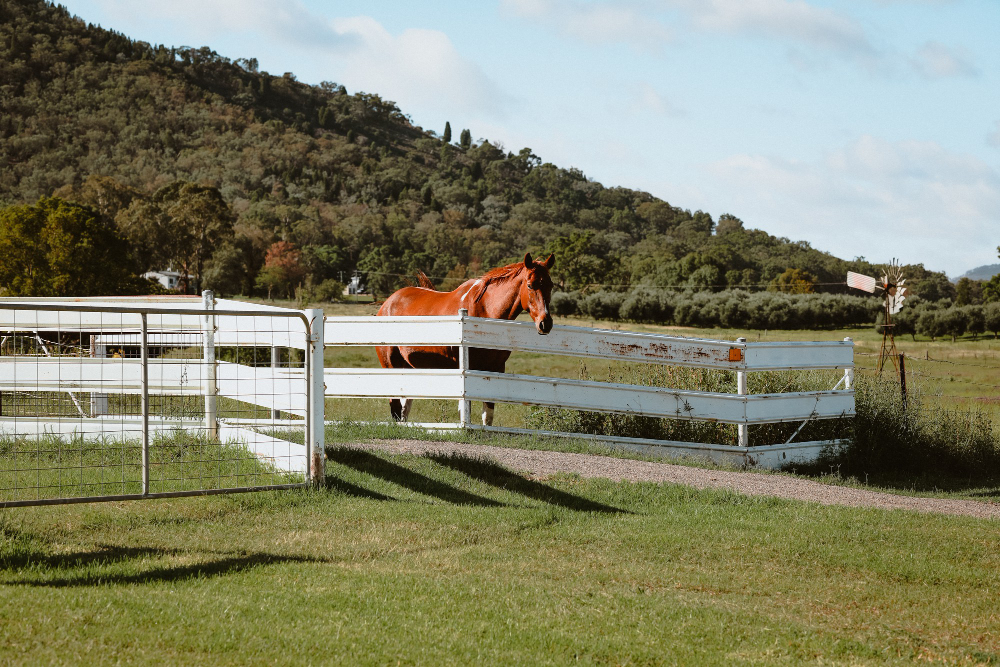The Ultimate Guide to Horse Fencing Options for Your Farm

Owning a farm requires a deep understanding of how to keep your horses safe, secure, and happy. One of the fundamental aspects of farm management is choosing the right fencing. Not only does it define your property boundaries, but it also plays a crucial role in the safety of your horses. In Sanford, FL, the choices you make regarding your horse fencing can be the difference between a serene, secure pasture and one that poses risks to your cherished animals. This blog post will explore the various horse fencing options available, focusing on their benefits and considerations, to help you make an informed decision.
Understanding the Basics of Horse Fencing
Before we dive into the specifics, it's essential to understand what makes a fence suitable for horses. Horses are curious and social animals but can be quite flighty when spooked. Therefore, the ideal fence should be:
- Visible: Horses should be able to see the fence clearly to prevent accidental collisions.
- Strong: Enough to withstand pushing and leaning by horses.
- Safe: Free of sharp edges or points that can cause injury.
- Maintenance-friendly: Easy to repair and maintain over time.
- Aesthetically pleasing: Complements the overall look of your property.
With these criteria in mind, let’s explore the fencing options that meet these needs.
Wood Fencing: The Classic Choice
Wood fences are a traditional choice that offers a natural, rustic look complementing any farm landscape. They are highly visible and can be quite strong, depending on the construction. However, wood fences require regular maintenance to prevent rot, decay, and damage from the elements.
Vinyl Fencing: Low Maintenance and Safe
Vinyl fencing is a popular alternative to wood as it mimics its aesthetic while offering a virtually maintenance-free solution. It's strong, durable, and, most importantly, flexible upon impact, making it a safer option for horses. The initial investment might be higher, but the longevity and ease of care can offset the initial costs.
Electric Fencing: Effective for Containment
Electric fences serve as a psychological barrier; a horse will typically touch it once, get shocked, and learn to stay away. It's an effective method for containing horses and can be used alone or in conjunction with another fencing type. However, it requires a power source and regular checks to ensure it's functioning correctly.
Pipe Fencing: Durable and Horse-Safe
Pipe fencing is an excellent choice for durability and safety. Made from steel or aluminum, it's almost maintenance-free and highly visible. Its round edges make it safer than some alternatives. However, the cost can be prohibitive for larger areas, and the installation process is more labor-intensive.
Mesh Fencing: Secure and Cost-Effective
Mesh fencing is made from woven wire that is difficult for horses to break through. It's an economical choice and offers high visibility. The small openings prevent horses from getting their hooves caught, making it a safer option. However, it can require more maintenance to keep the wire taut and the posts in good condition.
Making the Right Choice
When choosing the right fencing for your horses, consider:
- Budget: How much are you willing to spend not just initially but over time?
- Property Size: Larger areas might benefit from more cost-effective solutions.
- Aesthetics: How important is the appearance of the fence to you?
- Horse Safety: Ultimately, the safety and well-being of your horses should be the primary concern.
For those in Sanford, FL, seeking professional advice and installation, local fence contractors can provide invaluable expertise. They can help assess your property, understand your needs, and recommend the best fencing solution for your farm.
Conclusion
Choosing the right fencing for your horse farm is a significant decision that affects the safety, aesthetics, and ease of maintenance of your property. Whether you prefer the classic look of wood, the durability of pipe fencing, the maintenance-free appeal of vinyl, the effectiveness of electric fencing, or the cost-effectiveness of mesh, there’s an option that’s right for you. Engaging with professional fence contractors in Sanford, FL, like Byers Fence, can provide you with the expertise needed to make the best choice for your situation. Remember, the right fence not only keeps your horses safe but also enhances the beauty and functionality of your farm for years to come.
For those looking to explore horse fencing options further or to schedule an appointment, contacting a reputable contractor can be the first step towards securing your farm and ensuring the well-being of your horses.